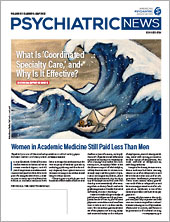Psychiatry can save psychotherapy and strengthen itself at the same time. The simple truth is that a great deal of human suffering is caused by nonconscious mental miscalculation. Serious pain and morbidity are so often due to the human mind doing what it is designed to do but obtaining less than optimal results.
Is there any reason why psychiatry should wash its hands of this source of pervasive and devastating suffering? In my opinion, no.
It isn’t controversial today to say that the human brain evolved as an organ whose function was primarily to identify opportunities and threats and to respond in ways beneficial to our species. And it is no longer controversial to say that much of the mental activity responsible for those responses takes place outside of consciousness. Some maladaptive responses derive from archaic patterns in existence before modern humans. Others were once adaptive but are no longer because the context has changed.
These maladaptive patterns can be influenced by biology, but they are, first of all, products of the mind. They are subcomponents of disorders, resulting from information processing gone astray. They are encoded in long-term memory, in neural networks and pathways determined by the number and strength of synapses.
Psychotherapy has been shown to be effective because it is the most precise and selective way to modify just those computational patterns. Therapy does not aim primarily to change biology; it aims to change the stored information that determines maladaptive patterns of response. Is there a reason why diagnosis and treatment of maladaptive patterns of response held in neural networks should slip from the purview of psychiatry?
Psychiatry is in danger of dropping psychotherapy from its scope of practice for reasons that are historical and no longer valid. Until the 21st century, there was no science to explain how patterns of automatic mental calculation were encoded and stored or how they could be modified. Today, psychiatrists are the mental health professionals best equipped to appreciate and apply new knowledge in this area.
We know now of only two pathways for modifying existing patterns. Extinction teaches the cortex to inhibit expression of the maladaptive pattern. Memory reconsolidation reprograms information stored in neural networks according to new experience or cognition, such that a healthier response is retained.
What is remarkable and important about this knowledge is that 21st century neurophysiology confirms and sharpens what the field of psychotherapy has been groping for since the 1890s. In light of recent science, two simple but crucial conditions, when they co-occur, have been found to bring about change by both mechanisms. First, the old, maladaptive pattern and the deep limbic emotion that triggers it must be in an active state. Second, new, surprising information must be encountered that contradicts the old, causing a “prediction error.” Those conditions cause both short-term and enduring change to take place.
Psychodynamic therapy, cognitive-behavioral therapy, exposure therapy, schema therapy, mindfulness-based therapy—all the various schools of psychotherapy—have evolved toward intuitive approximations of the same requirements for change that neurophysiology can now explain. Finally, we have a precise and universal way to describe and optimize our efforts at changing maladaptive patterns.
Among mental health practitioners, we are the ones trained to understand and appreciate the intersection of biology and humanism. We are the ones trained to grasp the neural basis of how words spoken and interpersonal events can cause neurons to be activated. We are the ones who can best understand how healthier words and experiences can render volatile and replace old perceptions and responses frozen in memory. And we are leaders among those who study, practice, and teach this knowledge.
We need to go further in incorporating this recent science into our teaching and practice. As we do so, our approach to psychotherapy will change in a subtle way. We will begin to pay more attention to the processes taking place than to the methods we have been taught. Technique will become more flexible and better matched to the patient and situation. Backed by recent science, the silos dividing our field will fade in importance and will no longer cause confusion and contention that undermine our profession. In short, knowledge of the neuroscience of information can and should be instrumental in keeping psychotherapy at the core of our profession. ■

